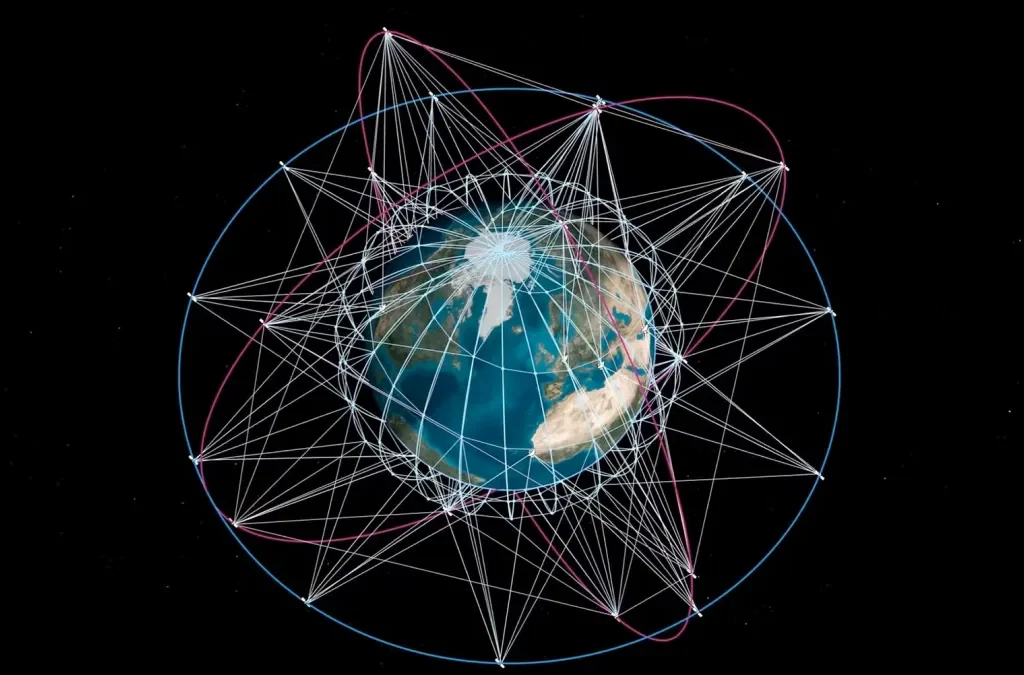Despite growing enthusiasm in Europe for achieving autonomy in space infrastructure, significant doubts remain about the feasibility of IRIS², a major government-backed satellite communications constellation project aimed at providing secure connectivity across Europe.
The Infrastructure for Resilience, Interconnectivity and Security by Satellite (IRIS²) initiative, backed by a consortium known as SpaceRISE, aims to deploy a constellation of satellites in medium and low Earth orbit to deliver broadband and secure communications. European governments and companies signed contracts in December to begin development, with the project currently in a one-year design phase expected to conclude with a critical review by the end of 2025.
Stéphane Israël, former CEO of launch firm Arianespace and now a partner at Boston Consulting Group, emphasized IRIS²'s strategic importance in a May 27 address at the SmallSat Europe conference. “Europe needs IRIS² because we are in a moment of geopolitical disruption,” he said, highlighting concerns over dependence on dominant non-European providers like SpaceX's Starlink. “There is a new race for orbital dominance, and there is a necessity for Europe not to be reliant on non-European capacity.”
Others echoed concerns about reliance on privately owned networks in conflicts such as the war in Ukraine. Martin Haunschild, business development manager at German satellite equipment maker Mynaric, noted, “We need independency and we have the strengths in Europe to build up a system that we need.”
However, the project faces internal skepticism. Sven Meyer-Brunswick, principal at Alpine Space Ventures, described IRIS² as “dead in the water,” criticizing its centralized approach and advocating instead for a U.S.-style phased development with multiple suppliers to foster competition and cost efficiency. “The Space Development Agency is doing a phenomenal job deploying capabilities very cost efficiently,” he said.
Financing also remains a challenge. The constellation's estimated cost is around 10.6 billion euros ($11.6 billion), with SpaceRISE expected to cover roughly 4.1 billion euros. Some investors remain unconvinced of a viable commercial business case, describing IRIS² primarily as a sovereign public network with limited private sector interest. Daniel Biedermann, investment partner at NewSpace Capital, said, “Until there's a different proposition on the table, I can't see how a private investor will come into this.”
Institutional investors such as France's export-credit agency BPI France expressed cautious interest but emphasized the need for detailed project information and clear roles for French industry participants. “Financing with private debt will be a challenge,” said Sandrine Bedat, deputy head of the agency's space and telecom unit, “but I think lenders and export credit agencies will be there when it will be the time to assess the project.”
Proponents maintain IRIS² aims to serve both commercial and governmental customers. Jean-Hubert Lenotte, director of strategies at satellite operator Eutelsat, said the project's “dual nature” was key to its relevance. Yet, questions persist about the constellation's scale — a few hundred satellites — and whether European broadband needs justify such an investment given extensive terrestrial infrastructure.
Alizee Acket-Goemaere of McKinsey pointed out, “The scale is just not the same” compared to Starlink's thousands of satellites, while also questioning whether a megaconstellation for consumer broadband aligns with European demand.
Laurent Jaffart, European Space Agency's director of connectivity, emphasized technical strengths, including planned use of 5G standards and incremental constellation growth over time. Still, cost overruns loom, with estimates exceeding public budgets by over a billion euros. Israël suggested potential funding could come from the EU's 800-billion-euro Readiness program, depending on the portion allocated to space initiatives.
The project is led by European operators SES, Eutelsat and Hispasat, with SES overseeing medium Earth orbit satellites, Eutelsat the high-LEO segment, and Hispasat handling low-LEO elements mainly for technology demonstration.
Smallsat manufacturers such as AAC Clyde Space and EnduroSat see opportunities as component and system suppliers, though industry leaders warn about potential fragmentation slowing progress. Steve Collar, chairman of Swiss satellite firm SWISSto12 and former SES CEO, voiced confidence in a role for his company despite Switzerland's non-EU status, highlighting the need for integration across IRIS²'s diverse orbital segments.
“It's not one system,” Collar said. “It's a risk the Commission certainly sees, and it's something I think we can help them with.”
As Europe balances ambitions for strategic independence with technical, financial, and political hurdles, the future of IRIS² remains uncertain amid a competitive global satellite broadband landscape.
